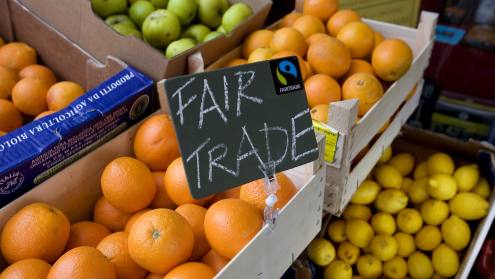“They won’t even give me an overdraft. I have been with them for years, and I have got nearly £1500 a month going in; they still won’t even give me anything.”
These are the words of a south Londoner in their 50s, in a new report by the financial inclusion body Fair4AllFinance. This individual, stretched financially like so many across the country, says that this lack of overdraft has pushed them towards loan sharks.
This isn’t the only such story in that new and troubling report, which shows the extent to which illegal lenders are visible in communities across the UK.
Furthermore, that report is far from the first time I’ve heard such stories of financial exclusion; in the nearly two years I have led the social lender Fair for You, I’ve come across plenty of instances where the lack of financial products for those in financially vulnerable circumstances has pushed ordinary people into difficulty.
To give another example: one of our customers describes her sister turning to a doorstep lender after her bank declined her loan application. Our customer later had to bail her sister out of that high-cost loan.
I don’t want to come across as exclusively critical of banks. As the former CEO of fraud prevention service Cifas, and having observed measures banks have taken to support customers during the uncertainties of the Covid-19 pandemic, I know that the sector does much that should be applauded.
As the leader of an Financial Conduct Authority-regulated social enterprise myself, I know that the constraints within which a financial institution must operate create many headaches. And with the organisation I lead being in the business of financial inclusion, I see significant mutual opportunities in collaborations between our respective sectors.
I also know that it is not the banks’ intention to exacerbate the cost-of-living crisis. But we can’t get away from the fact that by not providing services to many people who are seen as ‘high risk’, this is exactly what is happening.
Many bank customers who can well afford to repay a loan, for example, are being penalised by lending policies that may go further than necessary. Fair for You is able to lend to people regarded as sub-prime prospects with a very low default rate.
While Fair for You, alongside credit unions and other Community Development Financial Institutions (aka responsible lenders), is able to serve some of those you decline, as a sector we are modest in size and cannot be there for all of them. Instead, many of those people end up with high-cost or illegal providers, or go without essential items such as food.
Equally, banks cannot get away from new polling by the Fair Banking for All Campaign, of which Fair for You is part, showing that 68% people in the UK think it’s unfair that some people get different levels of service from banks because of their status or background.
This isn’t just a question of suggesting that banks pander to public opinion. There are, in total, around 17.5 million people in the UK classed as being in financially vulnerable circumstances, and more than 10 million with less than £100 in savings.
If banks can think more about lifetime value than immediate risk, it would benefit not just the banks but society as a whole
This is a sizeable market, including many people who, even if risky-looking today, could be loyal and profitable customers for decades to come. If banks can think more about the lifetime value than the immediate risk, then this would benefit not just the banks but society as a whole.
Back to the coalition’s research: the same proportion of the public, 68%, would support a new law that forces banks to report on how equally they provide services to people from different backgrounds or status.
This is already happening in the US, where a Community Reinvestment Act has been in place since 1977. Banks initially saw this as a ‘regulatory must-do’, but later realised it led to profitable opportunities in areas where they weren’t previously active, among various other reputational, customer and financial benefits.
The Campaign’s proposed Fair Banking Act takes inspiration from that piece of American legislation, building on its success. Backed by Fair for You – along with the Association of British Credit Unions Limited, Responsible Finance, Finance Innovation Lab and others – its two key features are:
- requiring mainstream banking institutions to report on their performance on financial exclusion, through a transparent, publicly available framework;
- creating a system for clear ratings, showing which banks are doing well and which need to improve.
Crucially, banks would be able to improve their rating by providing affordable and ethical lending to underserved communities, either directly or through a partnership with community finance providers.
This legislation would be a win-win, we argue: good for society and good for banks. Ironically, it might actually be bad for the organisation I lead – banks could put Fair for You out of business tomorrow if they wanted, but we’d much rather work in partnership with mainstream banks to address financial exclusion together.
A growing number of politicians are taking interest. The coalition has already had productive conversations with representatives of some of the UK’s largest parties, and others in Westminster. The industry itself has begun to engage, slowly but surely, and I greatly welcome this.
Simon Dukes is CEO of Fair for You and of the Fair Credit Charity.







